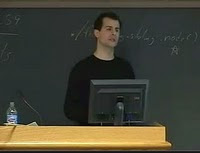Data file Handling
Introduction :
Many applications require that information be written to or read from an auxiliary memory.
Such information is stored on the memory device in the form of a data file.
Thus files allow us to store information permanently, and to access and
alter that information whenever necessary.
In C, an extensive set of library; functions is available for creating
and processing data files. Unlike other files.
However, there are two different types of data files
1. Stream-oriented (or standard) data files:
Stream oriented data files are generally easier to
work with and are therefore more commonly used.
Stream-oriented data files can be subdivided into two categories.
The first category are text files, consisting of consecutive
characters. There characters can be interpreted as
individual data items, or as components of strings or numbers.
2. System-oriented (or low level) data files:
System-oriented data files, often referred to as
unformatted data files, organizes structures, such as
arrays and structures.
A separate set of library functions is available for
processing stream-oriented data files of this type.
These library functions provide single instructions that
can transfer entire arrays or structures to or from data files.
Note: Library function has been discussed in detail in next section.






0 comments:
Post a Comment